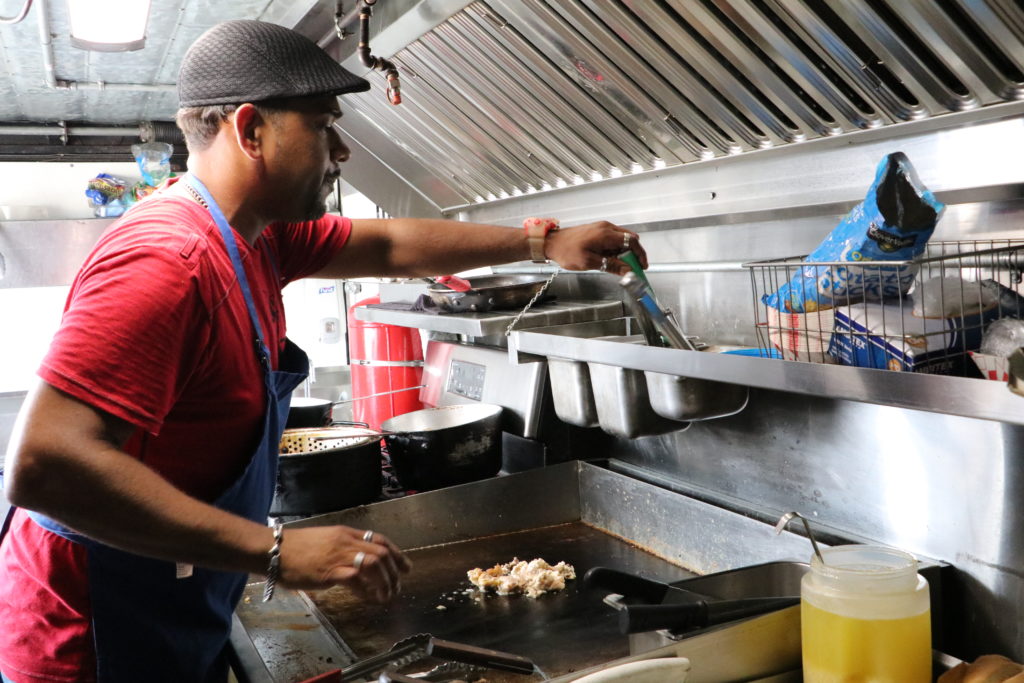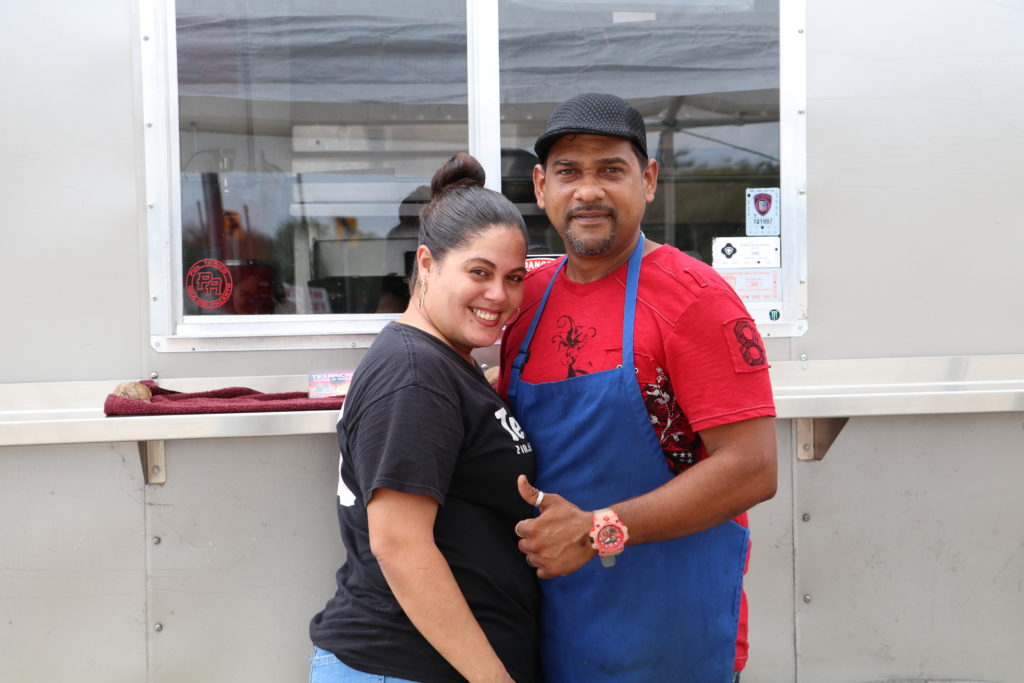In Tex-Mex country, ‘el sabor’ helps Boricua culture thrive
When Joshua Matta and his wife first left Puerto Rico for Texas, he would get excited whenever he saw a car carrying the island’s flag.
It was 20 years ago, and the couple was homesick.
“You can live a complacent life in Puerto Rico,” said Matta, who worked as a truck driver for most of the time after he left. “But if you want to vacation, travel and live right … there’s just more opportunities out here.”
Driven by nostalgia, the couple opened a food truck eight months ago that serves authentic Puerto Rican fare. It’s called “Texarican,” and it serves traditional Puerto Rican dishes like fried plantain, mofongo and empanadillas — a break from the tacos, fajitas and enchiladas that dominate local menus.

As a border state, Texas is deeply tied to Mexican culture. According to the U.S Census Bureau, Hispanics are on their way to becoming the largest population group in Texas by 2022.
But within that growing population, another Latinx group is contributing to that statistic: Boricuas.
Although Puerto Ricans are a much more prominent group in eastern states like New York and Florida, Texas has had a fair share of growth from this community. The Center of Puerto Rican studies estimates that the number of Puerto Ricans in Texas more than doubled from 69,000 in 2000 to 177,000 in 2014.
The Association of Puerto Ricans in San Antonio, led by Migdalia Aponte, prides itself in spreading and preserving Puerto Rican culture for new generations growing up outside of their homeland. The association, which was created in 2009, has a mission to “live our culture here at home … away from home,” according to its website.
Aponte, who spearheads many of the organization’s events, says it’s important to bring together Puerto Ricans in San Antonio.
“It felt lonely at times, yeah,” Aponte said. “But we started organizing and uniting the little community that just grew every year.”

Matta said he’s seen an influx of two groups: Puerto Rican military personnel who chose to retire after being stationed at one of the city’s many bases and people moving to escape the aftermath of Hurricane Maria.
In a largely Mexican-American city, being a part of another Hispanic group means some Boricuas struggle with their identity, like many migrants who face pressure to assimilate when they move to the United States.
“Even though we are (U.S.) citizens,” Matta said, “we have our own culture.”
So how does a community dominated by a larger minority group keep its identity alive?
“El sabor” — our flavor, Matta said.
“There aren’t many other Puerto Rican restaurants,” he said. “It was hard to find a good empanadilla. So we just started doing it ourselves.”
Matta and his wife shared food from their homeland this past January in San Antonio at a celebration called a chinchorreo — a word that stems from the noun chinchorro, which is a kiosk or restaurant that serves Puerto Rican snacks and dishes, sometimes accompanied by music. To chinchorrear is to go from chinchorro to chinchorro eating, drinking and dancing.
They participate in community events like this that help bring their community together to celebrate their roots — even when they’re 2,000 miles from home.
Being Puerto Rican in Texas can be isolating and welcoming at the same time. Matta said that for many Puerto Ricans, Texas feels like a home away from home because of a shared Hispanic culture.
“For those (Puerto Ricans) who can’t speak English, it’s easy,” Matta said. “Everyone here speaks Spanish.”
Customers of all races, ethnicities and dietary preferences come to Matta and his wife for their Caribbean delicacies. Some, Matta said with surprise, are even vegan.
The couple use flavors from their homeland not only to maintain their Puerto Rican identity in Texas but to share the beauty of their culture with others.
Yet despite his affection for Puerto Rico, a trip back made him realize how much he’s bonded with the mainland.
The revelation came after he got a craving.
“Man, none of those taco places had real salsa like the ones my Mexican friends here make,” he said. “I love Puerto Rico, but Texas is now home.”
Vania Patino is a 2019 NAHJ Student Project participant. She is a student at Cal State University, Fullerton majoring in communications with a emphasis on broadcast journalism. She is an assignment desk editor at NBC Universal Telemundo. Reach her at vaniapatino12@csu.fullerton.edu and on Twitter at @VaniaPatino12.
Live to hear our culture and flavor is being spread in texas. Love it email
Thanks for sharing this story as a Puerto Rican living also in a small city in west Michigan its nice to hear that our culture and people are thirving in other states
The best place to go . Customer service is great and they are most loving people. I have it every plate I like them all. I go there I just ask them to surprise me. Great job
Keep reaching for a better life any where you go 💯
Vanita patino, thanks so much for a great and professional job, and for trusting
Our service here in Texas, the family of TEXARICAN would like to see you again.
Thanks 👌👌👍👍🇵🇷🇵🇷